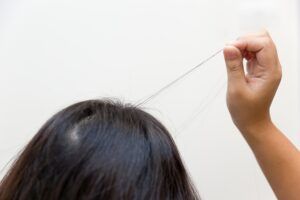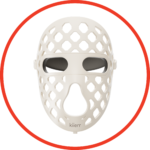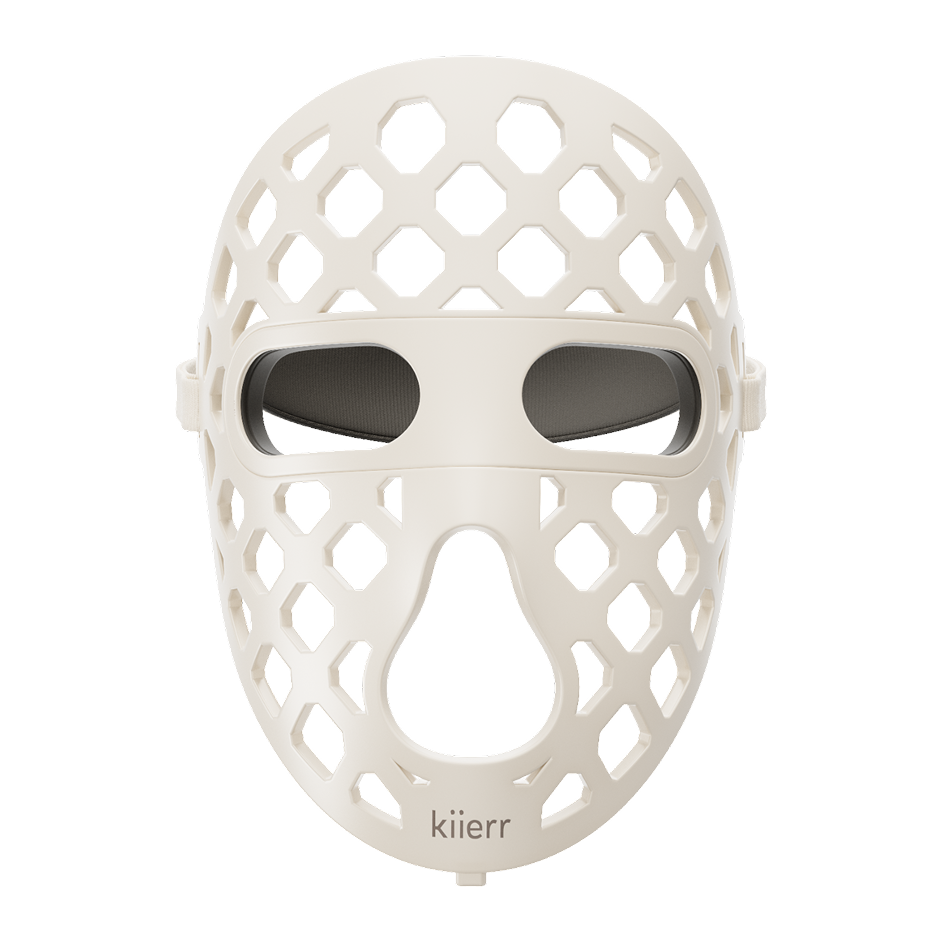Add items to get a Free Gift!
Health Behind Hair
Does Stress Cause Hair Loss?
Throughout your life, you are bound to live through a period of textural changes in your hair. Before you know it, you might also see your hair getting thinner at an alarming rate. You may be anxious, and rightfully so, to find out what could be causing this rapid fall of hair and what you can do to fix it.
So, does stress cause hair loss? You may have heard or read that stress causes hair loss, and it is the truth. However, stress is not the primary or only reason, but it does partly influence your hair’s health.
Table of Contents
Can Stress Cause Hair Loss?

Normal hair loss and pattern baldness may have genetic programming, but hair loss due to stress is environmental. If you can manage your stress levels, you may be able to control this form of hair loss more easily. Keep in mind this is usually easier said than done.
High stress levels, perhaps from an injury, prolonged illness, shock, surgery and others, can cause three kinds of hair loss. These include:
- Trichotillomania
- Alopecia areata
- Telogen effluvium
Let’s go into these three kinds of hair loss in detail.
1.) Trichotillomania

Trichotillomania is an impulse control disorder that arises from stress. It is a hair-pulling disorder, where you feel the urge to pluck your hair out of the scalp or parts of your body when feeling stressed.
In this order, you suffer from unintentional hair pulling, mostly when you are distracted or feeling mentally lost. Disorders often result when there are pent up stress and negative emotions inside you, and your body unintentionally resorts to such destructive means of venting stress.
Hair pulling from the eyebrows, scalp and even eyelashes are quite noticeable, only adding to the discomfort. This consequentially results in additional stress, reviving the cycle of the disorder. This disorder most often develops during the preteen years and can last a lifetime. There are no clear reasons to suggest the definite causes of this disorder, but some research suggests that it is genetic.
2.) Alopecia Areata

An autoimmune disease, alopecia areata develops when your hair follicles are under attack by the immune system. Stress again can be responsible for triggering this condition and it often ends in noticeable hair loss.
Alopecia areata features hair loss in round patches on your scalp and can even spread across the whole of the scalp. Alopecia Universalis is the most severe form of alopecia areata in which you lose hair from your body.
This condition features a vicious cycle in which your hair can regrow and then all fall out again a short time later. In the U.S alone, over six million people suffer from alopecia areata, and there are no gender biases here. Men and women are both susceptible to this form of hair loss.
There is hardly any cure for this hair loss to date, although some treatments can help depending on the individual. We will get into this treatment later.
3.) Telogen Effluvium

When the growing number of your hair follicles changes, you may experience another form of hair loss we refer to as telogen effluvium. If the numbers change during the resting or telogen phase of your hair growth, you may experience shedding consequently.
The only consolation in this condition is that you might not lose all the hair on your head. You will likely experience thinning towards the center of your scalp and mostly in patches. Those who suffer from telogen effluvium do not generally lose all of the hair on their scalp.
Of course, there can be exceptions in extreme cases of telogen effluvium, but in those, too, only certain parts of your body will lose hair. Dermatologists treat telogen effluvium as the second most common type of hair loss, with patients of both genders and varying age groups.
The good news is that telogen effluvium is a reversible form of hair loss. It does not permanently damage your hair follicles, and you can always look for treatment options for regrowth. The only factor is that your telogen effluvium’s cause determines how long it will take your hair to grow back. In many cases, it can take a few months or even longer.
Does Stress Cause Hair Loss Permanently?

There is a possibility of reviving your hair growth if you have lost it mainly due to stress. Hair loss from stress is not lasting. However, the rate of growth varies depending on the individual and their health status.
Your hair growth occurs in four main stages:
1.) Anagen:
This phase is when your hair grows and can last between 2 to 7 years.
2.) Catagen:
This phase sees your hair follicles shrinking and does not generally last beyond two short weeks.
3.) Telogen:
We call this the resting phase, and it lasts for approximately three months.
4.) Exogen:
Your hair follicles begin in new growth in this phase after shedding hair.
You can revert from hair loss to a healthy growth if stress is the only reason your hair loss began in the first place. Here are some measures you can take to manage stress:

- Eat a nutritious and balanced diet.
- Use a laser hair growth cap.
- Include all the essential vitamins in your daily diet, especially Vitamin B, vitamin C and vitamin E. These are good for hair growth. Sources of these include citrus fruits, dark leafy greens, avocados, nuts, beans, bells peppers, broccoli strawberries, shrimps, and olive oil, spinach and sunflower seeds.
- Manage and relieve your stress levels to reduce the risk of hair loss. You can adapt any coping techniques that suit you, such as meditation, yoga, exercise, writing, picking up a hobby, sports, etc.
Stress and Hair Loss Treatment: Laser Caps

As mentioned previously, laser caps can be used as a hair loss treatment. These FDA-cleared medical devices are intended for men and women suffering from forms of alopecia and hair loss. Equipped with 272 medical grade laser diodes, these caps emit low level light therapy (LLLT) into the scalp tissue.
When the LLLT penetrates the scalp tissue, it stimulates blood flow to the hair follicles. This allows the essential vitamins, minerals, and oxygen levels to reach the problematic (hair loss) areas of the scalp. As a result, the hair follicles begin to grow thicker and stronger than ever before.
Here is how Kiierr’s laser caps work.
Conclusion: Can Stress Cause Loss of Hair? Yes.

Stress is detrimental to our emotional and physical well-being; it is also particularly harmful to our hair. High levels of stress and anxiety can give way to a form of significant hair loss. It is essential to check the spread of stress in your life with the right foods, practices, routines and treatments. While life is undoubtedly stressful, there is absolute power in your being to let it from overwhelming you to the point of health and hair damage.
To learn more on this topic, check out this next article discussing the different types of hair loss and their causes.

 LASER CAPS
LASER CAPS




 Beauty Products
Beauty Products





 Daily Deals
Daily Deals RESULTS
RESULTS




